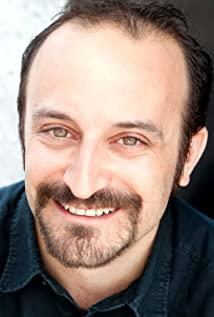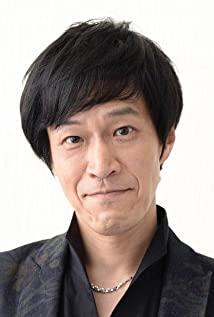Wang Guowei believes that the most important thing in the life of a big event is "the west wind withered the trees last night, and the tall buildings alone, looking at the end of the world". This in itself is a misunderstanding, not a misunderstanding of words, but a misunderstanding of idealism. read.
Almost all ideals will inevitably go to decline. After adulthood, especially in the past few years, you will more obviously feel the irresistible fading of enthusiasm for the world, and ultimately cannot boost your spirit. Do not rely on stronger self-discipline and more active search for points of interest to barely maintain one's life, such as learning to dance and painting, yoga, diving, do some handicrafts, and raise a dog more enthusiastically, according to contemporary The standards of exquisite urban beauty live out the ins style.
In the final analysis, ideals are the externalization of self-consciousness. In the process of self-gradual mediocrity, ideals will gradually dim. Ideals without brilliance are hypocritical, and there is no need to look all over the world. This kind of boring thing does not deserve to be at the end of the world. There is a place. When life came to this juncture, enthusiasm was almost wiped out, and Chu Chu Fengzhi, who did not have the painstaking effort of a poet in white, often picked up his own life with glass ballast and bloody hands.
When I am particularly mourned, it is especially difficult to accept why I always fail, especially when I am engaged in competitive competitions, it is even more difficult to accept. Learning to play is very fast, you can start playing with two tables, but learning to accept failure is too long, especially those failures that come not only from the arena, but also make people have an illusion-the reason why I fail is the fault of the environment .
And the sign of acceptance, or the sign of growth, is to realize that this is not an illusion, this is a fact, you are living in such an environment, and failure is even something destined.
But I realized that this problem is already after my derailment. When I have accepted that many things are destined to be unproductive, I went to watch "City of Philharmonic" one day after get off work. After reading it, I understood that the success or failure of the so-called ideal is actually a false proposition. People who aspire to this will walk on this road all their lives, and there may be gains and losses, regardless of success or failure. Whether you have gained a family or lost love, whether you have achieved fame or left, those glorious and pure, even holy things are going away from you, only the most extreme, the most desperate, and sacrifice everything for this. Talents will get the so-called "ideal realization", and everyone else is just watching those quicksand-like light spots slowly dissipate in their hands. For example, Griffith, why did Miura create his great career through etching? Is this kind of literary and artistic creation really selling badly? Does it really only have a formal meaning? Is it only a physical rebirth to sacrifice your companions?
What Griffith obtained at the moment of sacrifice was a kind of perfect idealist posture, that is, at that moment, he transcended reality and became a high-level life form, dominating everything in the world. Because he made his inner blueprint, his own personal spirit transcends the individual and encompasses the entire world, and his subjectivity has an unprecedented impact on the Three Realms. From this perspective, this is not a mysterious metaphor, but a natural presentation of the work. .
In the past, Griffith was just a mayfly who lived and died under the control of fate. The turmoil of the times and the overwhelming power could easily engulf him, and even his body and beauty did not belong to him. After being reborn, Griffith broke away from this low-end game and began to determine the fate of the world. In this sense, his success is idealistic success. If you like the blueprint he painted, you should be happy for the establishment of the Eagle Country.
Many people have questions, has Griffith wavered in the past? Or did he shake after meeting Gus? What is the thing that shakes him? Answer the most important question first, it's definitely not love. The so-called [Only you among tens of thousands of people make me forget my dream] I don’t think this is a declaration of love. Li Zitou, the master of UP at station B, once did a video analysis on the relationship between double styles. I don’t think I have any ideas. I won't go into details.
I just want to talk about whether Griffith's wavering is a betrayal of ideals. If we regard his ideals as the externalization of personal will, in fact, sometimes we will ignore another question, what is supporting Griffith's heart? In the final analysis, he was nothing more than a person. We only see him giving brilliance to the Three Realms, but is this enough? Is the grand ideal of the world enough to fill his heart? Obviously not. Because of this, it seems that Griffith, who is an ideal ultimate body, has forgotten his dream for a moment. The inner world of man is like a deep ocean vortex. I am afraid that even he himself does not know when Gus made him. Addicted, what exactly is he pursuing in Gus.
I don’t want to pretend, I think what Gus is about may become [realism] or [humanity]. Although it seems unreasonable, Griffith's ideals are too lofty and perfect, like a kingdom in the sky. We know that the more perfect, the purer, the more it has a brilliance that transcends the world. The process of ideals moving towards perfection is a process of deviating from the sense of reality. What kind of image is Gus, a black swordsman who has no magic and does not seek divine power. He relies on countless battles to polish his will and skills. While making people feel incredibly powerful, he also carries a kind of human power. And realism. Strength and weakness, collapse and perk, human nature is presented with countless shortcomings and weaknesses. What Griffith cut out from himself attracts Gus himself, and his full soul is attractive. Isn't it the same thing that Falsene left the Hall of the French King and traced Gus to seek.
Griffith wanted to interpret the legend of mortal sanctification and flying to the sky, but was attracted by Gus and fell into the world. Sacrifice is his second choice, man or god? Griffith became a god, and thus gave up his integrity. It is difficult for us to read from the current progress of the comics. At this time, he still has countless swirls in his heart, but we know that even if it is true On the day when he looked back suddenly, no one behind Griffith would be waiting for him.
Griffith’s story is intertwined with self-sufficiency and self-betrayal. Behind the ideals are chaotic personal wills. But if one of the tens of thousands makes you forget your dream, I think it's worth a moth to fight the fire.
View more about Berserk: The Golden Age Arc III - The Advent reviews











